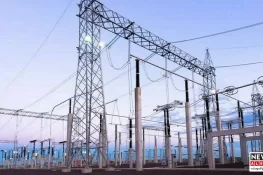Introduction
Pakistan has introduced major reforms that will reshape the country’s military command. As a result, Army Chief General Asim Munir will continue to lead the armed forces until 2030. The federal cabinet approved these measures during a meeting chaired by Prime Minister Shehbaz Sharif. The reforms, moreover, align defence laws with the 27th Constitutional Amendment.
Cabinet Passes Key Defence Bills
The cabinet first endorsed the Federal Constitutional Court (Procedure and Practice) Act 2025 and then approved amendments to the laws governing the army, air force, and navy. Soon after, the National Assembly passed these bills, although opposition lawmakers voiced strong criticism.
According to government officials, the legislation aims to modernise the military’s legal framework. Furthermore, it seeks to create clearer command lines and improve cooperation among the three services. Previously, overlapping roles often slowed decision-making during joint operations.
Army Chief to Become Chief of Defence Forces
A central part of the reform package is the creation of a new and more powerful position: the Chief of Defence Forces (CDF). Under the new system, the Army Chief will automatically assume this role.
Key elements include:
-
The CDF will serve a five-year term starting from the date of appointment.
-
The post of Chairman Joint Chiefs of Staff Committee (JCSC) will end on 27 November.
-
The current JCSC chairman will remain in office only until retirement.
Explaining the changes, Law Minister Azam Nazeer Tarar said the new structure will streamline command and, in turn, improve coordination. He added that many modern militaries already use unified leadership models to enable faster and more coherent decisions.
Restructuring the Armed Forces
Under these amendments, the CDF will supervise a broad restructuring of the army, air force, and navy. As a result, Pakistan will shift toward a single command model for planning and operations. Countries such as the United States, the United Kingdom, and India follow similar approaches.
Pakistan has long struggled with coordination challenges, especially during counterterrorism missions and border operations. Therefore, officials believe the new system will enhance response times and cut unnecessary layers of bureaucracy. Additionally, they expect improved readiness against cyber threats, hybrid warfare, and regional instability.
National Strategic Command to Have Defined Tenure
The reforms also define the term of the Commander of the National Strategic Command, which oversees Pakistan’s nuclear and strategic forces.
The main provisions are:
-
A three-year term
-
The option of renewal with government approval
According to the government, a fixed tenure will strengthen oversight of strategic assets. This, they argue, is essential because the area attracts intense international attention.
Asim Munir’s Term Extended to 2030
With these structural changes, General Asim Munir will lead Pakistan’s military until 2030. He assumed command in November 2022, during a period marked by political tension and rising security challenges. Since then, he has launched several internal reforms. The government believes continuity at the top will help the country manage economic pressures and security threats more effectively.
Analysts also note that Munir’s responsibilities will expand once he becomes the Chief of Defence Forces. Consequently, his role will carry greater influence over long-term strategy.
Opposition Reactions and Public Debate
Opposition parties, however, strongly rejected the bills. They argued that the reforms concentrate too much authority in a single office. Moreover, they criticised the speed of the legislative process, claiming that the government allowed little debate.
Government ministers dismissed these concerns. They insisted the reforms are necessary to strengthen national security and claimed they consulted all key stakeholders. Even so, the debate has widened as analysts and civil society groups examine the long-term impact of these changes.
Pakistan now faces shifting geopolitical pressures, including tensions with India, evolving ties with China and the United States, and persistent internal security challenges. Consequently, the new defence structure represents one of the most significant military reforms in recent decades.














